冀教版 英语课件:九年级下unit5 culture shapes us lesson37
文档属性
| 名称 | 冀教版 英语课件:九年级下unit5 culture shapes us lesson37 |
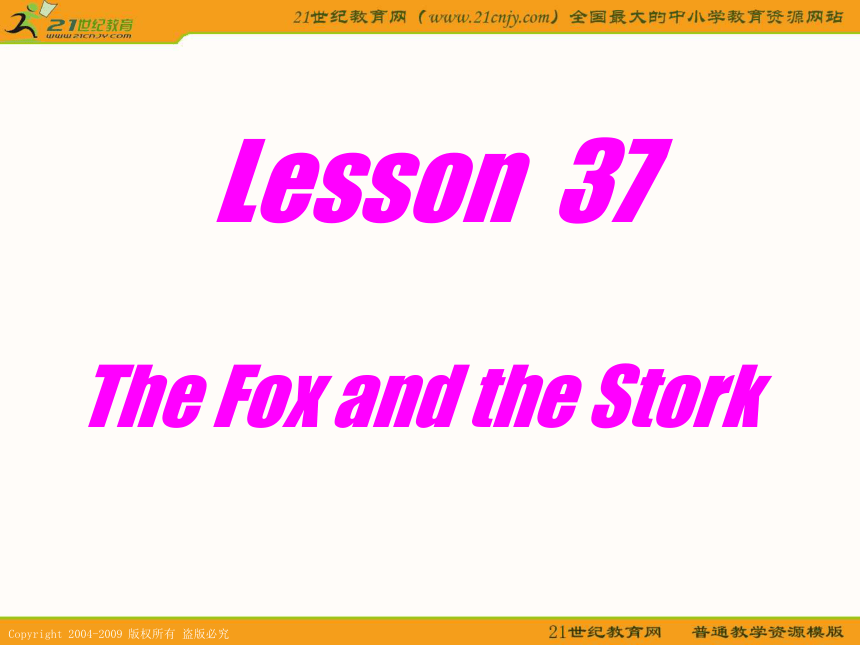
|
|
| 格式 | rar | ||
| 文件大小 | 2.8MB | ||
| 资源类型 | 教案 | ||
| 版本资源 | 冀教版 | ||
| 科目 | 英语 | ||
| 更新时间 | 2010-08-23 00:00:00 | ||
图片预览

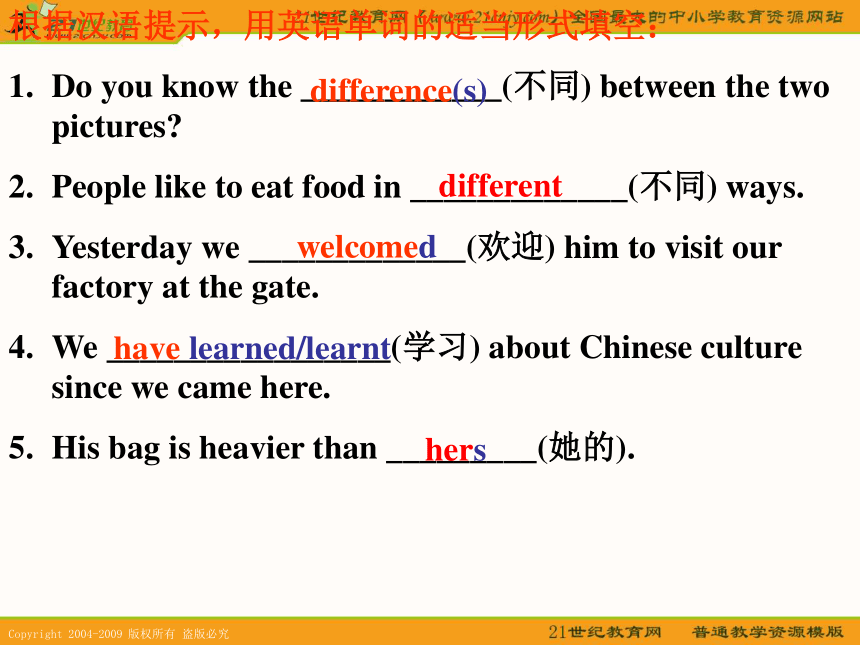
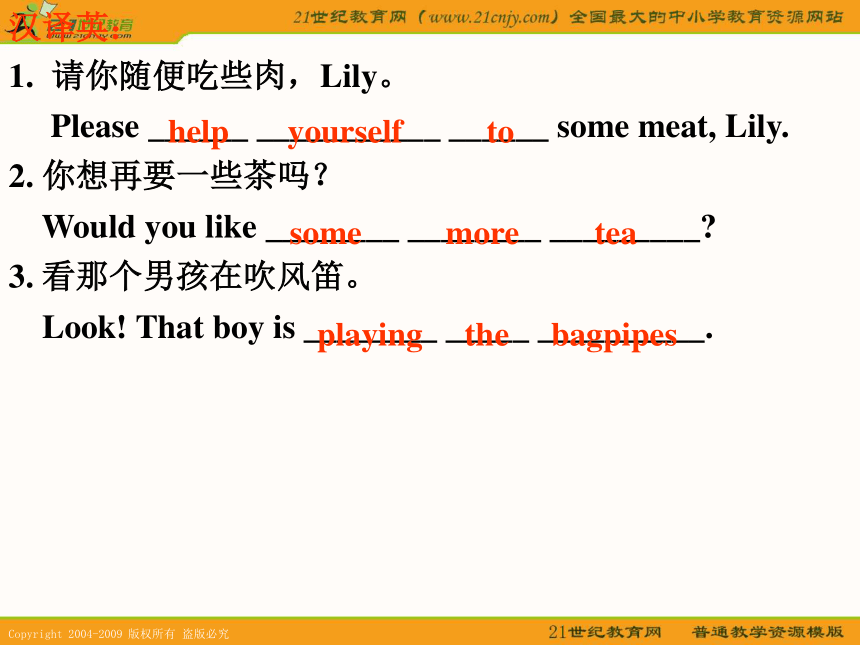
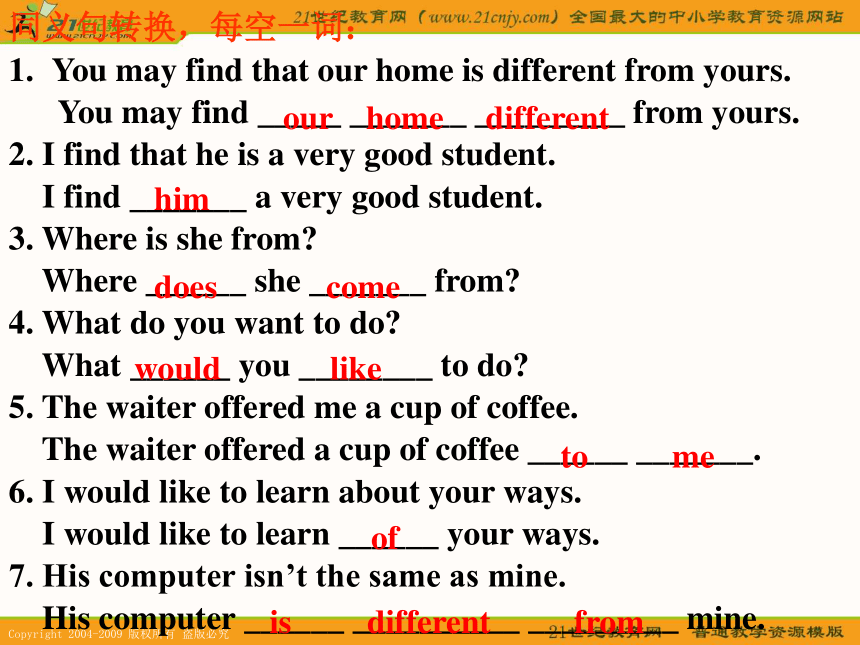
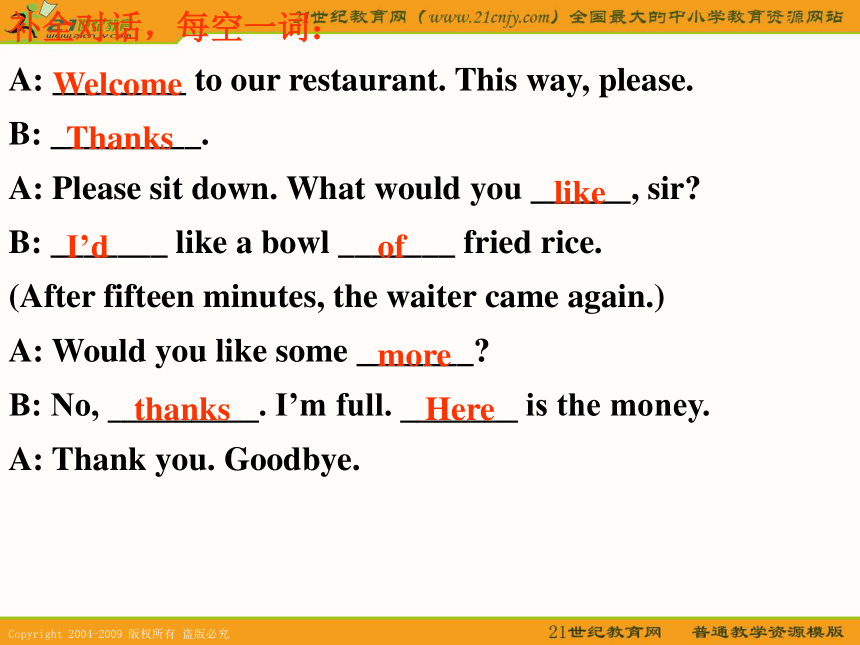
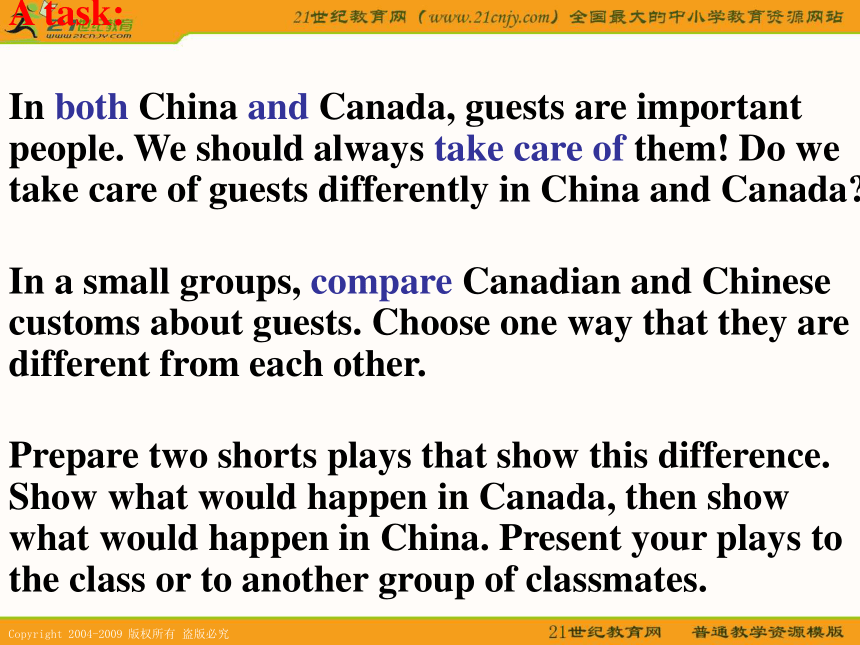
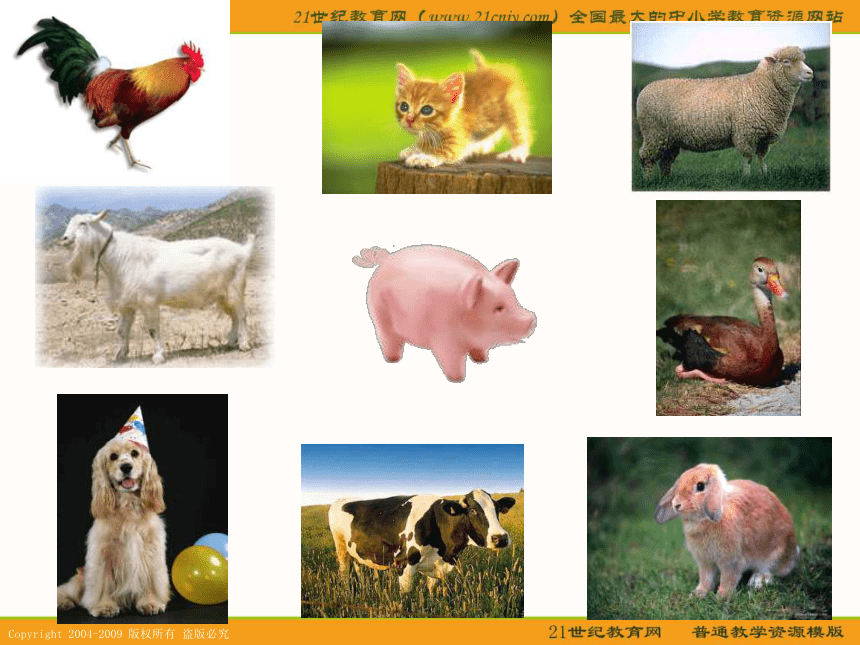
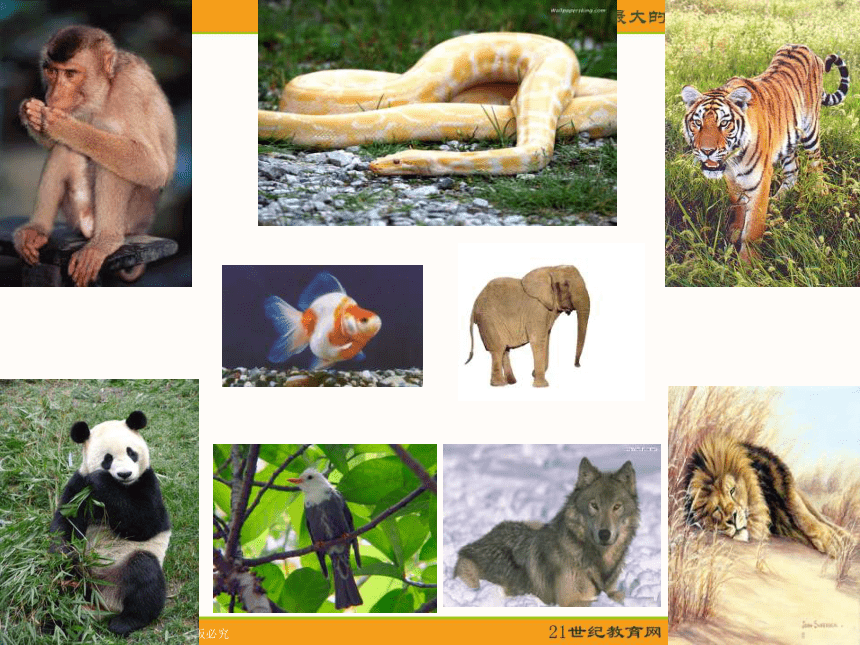
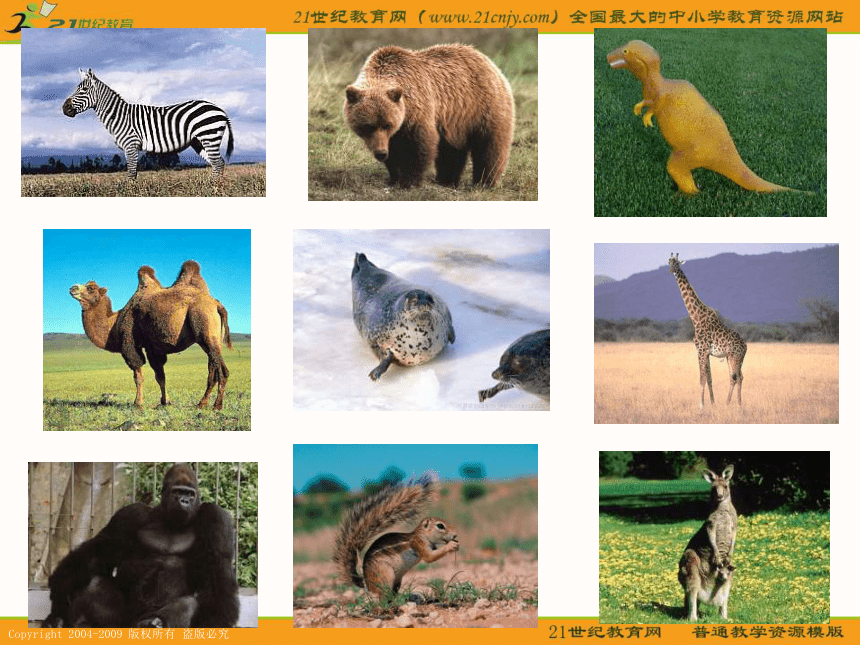
文档简介
课件26张PPT。
Lesson 37
The Fox and the Stork根据汉语提示,用英语单词的适当形式填空:
Do you know the ____________(不同) between the two pictures?
People like to eat food in _____________(不同) ways.
Yesterday we _____________(欢迎) him to visit our factory at the gate.
We _________________(学习) about Chinese culture since we came here.
His bag is heavier than _________(她的).difference(s)differentwelcomedhershave learned/learnt汉译英:
请你随便吃些肉,Lily。
Please ______ ___________ ______ some meat, Lily.
2. 你想再要一些茶吗?
Would you like ________ ________ _________?
3. 看那个男孩在吹风笛。
Look! That boy is ________ _____ __________.help yourself to some more teaplaying the bagpipes同义句转换,每空一词:
You may find that our home is different from yours.
You may find _____ _______ _________ from yours.
2. I find that he is a very good student.
I find _______ a very good student.
3. Where is she from?
Where ______ she _______ from?
4. What do you want to do?
What ______ you ________ to do?
5. The waiter offered me a cup of coffee.
The waiter offered a cup of coffee ______ _______.
6. I would like to learn about your ways.
I would like to learn ______ your ways.
7. His computer isn’t the same as mine.
His computer ______ __________ _________ mine.our home differenthimdoes comewould liketo meofis different from补全对话,每空一词:
A: ________ to our restaurant. This way, please.
B: _________.
A: Please sit down. What would you ______, sir?
B: _______ like a bowl _______ fried rice.
(After fifteen minutes, the waiter came again.)
A: Would you like some _______?
B: No, _________. I’m full. _______ is the money.
A: Thank you. Goodbye.WelcomeThankslikeI’dofmorethanksHereA task:
In both China and Canada, guests are important
people. We should always take care of them! Do we
take care of guests differently in China and Canada?
In a small groups, compare Canadian and Chinese
customs about guests. Choose one way that they are
different from each other.
Prepare two shorts plays that show this difference.
Show what would happen in Canada, then show
what would happen in China. Present your plays to
the class or to another group of classmates.foxstorkDescribe it!Think about it!
How many stories of animals do you know?
What are they?
Read carefully and answer the following questions:
What would the fox like the stork to do? Why?
What did the fox serve for the stork?
Why couldn’t the stork eat her soup at all?
The stork tried to be polite, didn’t she?
What would the stork like to do then?
How did the fox feel about this?
What does the story come from?
An ancient Greek story by Aesop.beakflatLanguage notes:1. At Danny’s dinner, Jenny and I didn’t like the food. at Danny’s dinner “在Danny’s 的宴会上” We talked about what we would do the next year at the New Year’s dinner.2. Aesop left many story. leave vt. “离开” “忘记” “留下” “使……处于……状态” Miss Zhao leaves the classroom in a hurry.
He left his book on his desk.
His grandpa left much money for him.
He left the baby by itself.3. Most of them are about animals, from which you can learn about the society. animals 是先行词
which是关系代词, 引导一个非限制性定语从句Language notes: dinner n. “晚餐;正餐” early dinner 午时的正餐
late dinner 晚时的正餐
be at dinner 在吃饭
have dinner 吃饭
ask sb. to dinner 请某人吃饭
It’s time for dinner. 是吃饭的时候了。 dinner n. “晚宴” a state dinner 国宴
give sb. a dinner for sb. 设宴招待某人5. Would you like to have dinner with me?4. The stork was different from other animals that the fox had met. animals 是先行词
that 是关系代词, 引导一个限制性定语从句Language notes: It is + adj. + of sb. to do sth. 该结构中形容词表示人的特
点、特征或性格。常用于此结构的形容词有:good, nice,
clever, foolish等。6. It’s very kind of you. 你太好了(你太客气了)。 It’s very kind of you to think of the others.
It’s very clever of you to work out the problem. It’s good for you to do morning exercises.
The question is too difficult for us to answer.
It’s too dark for me to see anything in the room.
It is + adj. + for sb. to do sth. 该结构中的形容词是描述事
物的形容词。Language notes:7. “When shall I come?” the stork replied. reply 较为正式
answer 常用词8. When the stork arrived, she was very hungry. arrive vi. arrive at + 小地方 arrive in + 大地方
可单独使用
reach vt. reach + 地方
get to … get to + 地方 多用于口语9. Are you ready for dinner? be/get ready for sth.= be prepared for sth.
“为某事做好了准备”
be/get ready to do sth. “准备好去做某事”Language notes:10. “Certainly,” said the stork, who was doing her best to be polite. do one’s best to do sth.
= try one’s best to do sth. “尽某人最大努力做某事” the stork 是先行词
who 是关系代词, 引导一个非限制性定语从句 当他在困境中时,我将尽力帮助他。 When he is in trouble, I’ll do/try my best to help him.11. The fox brought the soup in large, flat bowls. bring “带来,领来,取来”
take “拿走,取走”
carry “拿,提,抱,扛,搬,挑”之意,不强调方向,
有“负重”的含义
get 表示去别处把某人或某物“带来”“拿来”Language notes: _______ the children back from the kindergarten at four
o’clock.
Please __________ your clothes away.
I’ll ________ my son to the zoo this Sunday.
Can you ________ your new cards here tomorrow?
________ it there.
It’s raining outside. _________ an umbrella with you.
_______ your friend to my party next time.
Let’s _______ the girl to the hospital.
Please help me _______ the heavy box.
Let’s go and _______ the doctor.BringtaketakebringTakeTakeBring take carry getLanguage notes:12. The stork, though, could not eat her soup at all. though conj. “虽然,尽管,即使” 引导让步状语
从句,不和but连用,但可和yet 或
still连用。
adv. “可是,不过,然而” 通常放在句末 Though his father is ill, (yet, still) he works hard. Though it rained hard, they went on working.
= It rained hard, but they went on working. I have a bit of cold. It’s nothing much, though.
He said he would come. He didn’t come, though. not … at all “根本不,一点也不” I don’t like chicken at all.
She can’t speak any French at all.Language notes:13. “Don’t you like soup?” the fox asked, surprised. surprised 是形容词,作伴随状语14. You’ve hardly eaten anything! hardly: almost not “几乎不,几乎没有” 暗否定 They can hardly understand what you said, _________?
We hardly had time to eat breakfast, __________? another = one more
another three = three more15. And very rudely, he ate another bowl of soup. = You’ve almost eaten nothing!16. I will cook a meal for you. cook/make a meal for sth. “为某人做饭”can theydid weLanguage notes:16. He felt happy because he would see the stork again the next day. next是以现在时间为基点的”下一次”,和一般将来时连用
the next是以过去或将来的某一时间为基点的”下一次,第
二次”,和过去时或将来时连用,多用于间接引语中 There is going to be a sports meeting ___________.
She said there was going to be a meeting ____________.
He went to see a doctor ____________.next daythe next daythe next dayFill in each blank with the proper word from the brackets:
We can see many animals in the zoo, such as tigers, lions, elephants, ________ (fox) and so on.
A young man said something to me _________(rude) and then walked away.
Tom always asks our teacher questions _______(polite).
All the runners are ready _________(run). Who will be the winner?
It is raining ________(hard) outside. What a heavy rain!
foxespolitelyrudelyto runhardCorrect the mistakes:
She forgot her book in the classroom yesterday.
He could hardly remember anything, couldn’t he?
It’s really kind for you to stay here with grandma these days.
“Are you ready to dinner?” asked the fox.
Though he was very tired, but he went on working.
She said she would finish her homework next day.
Now the woman is doing her best to be politely.
It rained hardly last night.
___________couldleft___of__for dinner/to have dinner__________the next day______hard_____polite句型转换,每空一词:
He has hardly eaten anything, ________?
(完成反意疑问句)
2. The young man replied rudely. (对划线部分提问)
_______ did the young man _________?
3. The boy said, “Would you like to have dinner with me?”
(变为间接引语)
The boy asked ___________ I would like to have
dinner with _________.
4. You’ve hardly eaten anything! (同义句)
You’ve _________ eaten nothing.
has he Howreplywhether/ifhimalmostA task:
Use your imagination to act out the end of the story
with a partner.
Lesson 37
The Fox and the Stork根据汉语提示,用英语单词的适当形式填空:
Do you know the ____________(不同) between the two pictures?
People like to eat food in _____________(不同) ways.
Yesterday we _____________(欢迎) him to visit our factory at the gate.
We _________________(学习) about Chinese culture since we came here.
His bag is heavier than _________(她的).difference(s)differentwelcomedhershave learned/learnt汉译英:
请你随便吃些肉,Lily。
Please ______ ___________ ______ some meat, Lily.
2. 你想再要一些茶吗?
Would you like ________ ________ _________?
3. 看那个男孩在吹风笛。
Look! That boy is ________ _____ __________.help yourself to some more teaplaying the bagpipes同义句转换,每空一词:
You may find that our home is different from yours.
You may find _____ _______ _________ from yours.
2. I find that he is a very good student.
I find _______ a very good student.
3. Where is she from?
Where ______ she _______ from?
4. What do you want to do?
What ______ you ________ to do?
5. The waiter offered me a cup of coffee.
The waiter offered a cup of coffee ______ _______.
6. I would like to learn about your ways.
I would like to learn ______ your ways.
7. His computer isn’t the same as mine.
His computer ______ __________ _________ mine.our home differenthimdoes comewould liketo meofis different from补全对话,每空一词:
A: ________ to our restaurant. This way, please.
B: _________.
A: Please sit down. What would you ______, sir?
B: _______ like a bowl _______ fried rice.
(After fifteen minutes, the waiter came again.)
A: Would you like some _______?
B: No, _________. I’m full. _______ is the money.
A: Thank you. Goodbye.WelcomeThankslikeI’dofmorethanksHereA task:
In both China and Canada, guests are important
people. We should always take care of them! Do we
take care of guests differently in China and Canada?
In a small groups, compare Canadian and Chinese
customs about guests. Choose one way that they are
different from each other.
Prepare two shorts plays that show this difference.
Show what would happen in Canada, then show
what would happen in China. Present your plays to
the class or to another group of classmates.foxstorkDescribe it!Think about it!
How many stories of animals do you know?
What are they?
Read carefully and answer the following questions:
What would the fox like the stork to do? Why?
What did the fox serve for the stork?
Why couldn’t the stork eat her soup at all?
The stork tried to be polite, didn’t she?
What would the stork like to do then?
How did the fox feel about this?
What does the story come from?
An ancient Greek story by Aesop.beakflatLanguage notes:1. At Danny’s dinner, Jenny and I didn’t like the food. at Danny’s dinner “在Danny’s 的宴会上” We talked about what we would do the next year at the New Year’s dinner.2. Aesop left many story. leave vt. “离开” “忘记” “留下” “使……处于……状态” Miss Zhao leaves the classroom in a hurry.
He left his book on his desk.
His grandpa left much money for him.
He left the baby by itself.3. Most of them are about animals, from which you can learn about the society. animals 是先行词
which是关系代词, 引导一个非限制性定语从句Language notes: dinner n. “晚餐;正餐” early dinner 午时的正餐
late dinner 晚时的正餐
be at dinner 在吃饭
have dinner 吃饭
ask sb. to dinner 请某人吃饭
It’s time for dinner. 是吃饭的时候了。 dinner n. “晚宴” a state dinner 国宴
give sb. a dinner for sb. 设宴招待某人5. Would you like to have dinner with me?4. The stork was different from other animals that the fox had met. animals 是先行词
that 是关系代词, 引导一个限制性定语从句Language notes: It is + adj. + of sb. to do sth. 该结构中形容词表示人的特
点、特征或性格。常用于此结构的形容词有:good, nice,
clever, foolish等。6. It’s very kind of you. 你太好了(你太客气了)。 It’s very kind of you to think of the others.
It’s very clever of you to work out the problem. It’s good for you to do morning exercises.
The question is too difficult for us to answer.
It’s too dark for me to see anything in the room.
It is + adj. + for sb. to do sth. 该结构中的形容词是描述事
物的形容词。Language notes:7. “When shall I come?” the stork replied. reply 较为正式
answer 常用词8. When the stork arrived, she was very hungry. arrive vi. arrive at + 小地方 arrive in + 大地方
可单独使用
reach vt. reach + 地方
get to … get to + 地方 多用于口语9. Are you ready for dinner? be/get ready for sth.= be prepared for sth.
“为某事做好了准备”
be/get ready to do sth. “准备好去做某事”Language notes:10. “Certainly,” said the stork, who was doing her best to be polite. do one’s best to do sth.
= try one’s best to do sth. “尽某人最大努力做某事” the stork 是先行词
who 是关系代词, 引导一个非限制性定语从句 当他在困境中时,我将尽力帮助他。 When he is in trouble, I’ll do/try my best to help him.11. The fox brought the soup in large, flat bowls. bring “带来,领来,取来”
take “拿走,取走”
carry “拿,提,抱,扛,搬,挑”之意,不强调方向,
有“负重”的含义
get 表示去别处把某人或某物“带来”“拿来”Language notes: _______ the children back from the kindergarten at four
o’clock.
Please __________ your clothes away.
I’ll ________ my son to the zoo this Sunday.
Can you ________ your new cards here tomorrow?
________ it there.
It’s raining outside. _________ an umbrella with you.
_______ your friend to my party next time.
Let’s _______ the girl to the hospital.
Please help me _______ the heavy box.
Let’s go and _______ the doctor.BringtaketakebringTakeTakeBring take carry getLanguage notes:12. The stork, though, could not eat her soup at all. though conj. “虽然,尽管,即使” 引导让步状语
从句,不和but连用,但可和yet 或
still连用。
adv. “可是,不过,然而” 通常放在句末 Though his father is ill, (yet, still) he works hard. Though it rained hard, they went on working.
= It rained hard, but they went on working. I have a bit of cold. It’s nothing much, though.
He said he would come. He didn’t come, though. not … at all “根本不,一点也不” I don’t like chicken at all.
She can’t speak any French at all.Language notes:13. “Don’t you like soup?” the fox asked, surprised. surprised 是形容词,作伴随状语14. You’ve hardly eaten anything! hardly: almost not “几乎不,几乎没有” 暗否定 They can hardly understand what you said, _________?
We hardly had time to eat breakfast, __________? another = one more
another three = three more15. And very rudely, he ate another bowl of soup. = You’ve almost eaten nothing!16. I will cook a meal for you. cook/make a meal for sth. “为某人做饭”can theydid weLanguage notes:16. He felt happy because he would see the stork again the next day. next是以现在时间为基点的”下一次”,和一般将来时连用
the next是以过去或将来的某一时间为基点的”下一次,第
二次”,和过去时或将来时连用,多用于间接引语中 There is going to be a sports meeting ___________.
She said there was going to be a meeting ____________.
He went to see a doctor ____________.next daythe next daythe next dayFill in each blank with the proper word from the brackets:
We can see many animals in the zoo, such as tigers, lions, elephants, ________ (fox) and so on.
A young man said something to me _________(rude) and then walked away.
Tom always asks our teacher questions _______(polite).
All the runners are ready _________(run). Who will be the winner?
It is raining ________(hard) outside. What a heavy rain!
foxespolitelyrudelyto runhardCorrect the mistakes:
She forgot her book in the classroom yesterday.
He could hardly remember anything, couldn’t he?
It’s really kind for you to stay here with grandma these days.
“Are you ready to dinner?” asked the fox.
Though he was very tired, but he went on working.
She said she would finish her homework next day.
Now the woman is doing her best to be politely.
It rained hardly last night.
___________couldleft___of__for dinner/to have dinner__________the next day______hard_____polite句型转换,每空一词:
He has hardly eaten anything, ________?
(完成反意疑问句)
2. The young man replied rudely. (对划线部分提问)
_______ did the young man _________?
3. The boy said, “Would you like to have dinner with me?”
(变为间接引语)
The boy asked ___________ I would like to have
dinner with _________.
4. You’ve hardly eaten anything! (同义句)
You’ve _________ eaten nothing.
has he Howreplywhether/ifhimalmostA task:
Use your imagination to act out the end of the story
with a partner.
同课章节目录
- Unit 7 Work for Peace
- Lesson 37 Don't Fight!
- Lesson 38 Making School a Better Place
- Lesson 39 The Dove and the Olive Branch
- Lesson 40 The UN—Power of Words
- Lesson 41 Jenny's Good Advice
- Lesson 42 Peace at Last
- Unit Review
- Unit 8 Culture Shapes Us
- Lesson 43 A Visit to Chinatown
- Lesson 44 Popular Sayings
- Lesson 45 Different Manners
- Lesson 46 Home to Many Cultures
- Lesson 47 Good Manners
- Lesson 48 Supper with the Bradshaws
- Unit Review
- Unit 9 Communication
- Lesson 49 Get Along with Others
- Lesson 50 Tips for Good Communication
- Lesson 51 What Could Be Wrong?
- Lesson 52 The Power of a Smile
- Lesson 53 Working in Groups
- Lesson 54 How Embarrassing!
- Unit Review
- Unit 10 Get Ready for the Future
- Lesson 55 Look into the Future
- Lesson 56 Manage Your Time
- Lesson 57 Best Wishes
- Lesson 58 Ms.Liu's Speech
- Lesson 59 Keep Your Choices Open
- Lesson 60 Get a Good Education
- Unit Review
